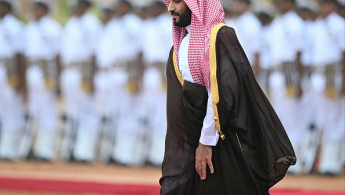Saudi Arabia says it's planning tougher IAEA checks on its nuclear activities
Saudi Arabia said on Monday it has decided to end light-touch oversight of its nuclear activities by the UN atomic watchdog and switch to full-blown safeguards, a change the agency has been demanding for years.
Saudi Arabia has a nascent nuclear programme that it wants to expand to eventually include activities like proliferation-sensitive uranium enrichment. It is unclear where its ambitions end, since Crown Prince Mohammed bin Salman has said for years it will develop nuclear weapons if regional rival Iran does.
Riyadh has yet to fire up its first nuclear reactor, allowing its programme to still be monitored under the Small Quantities Protocol (SQP), an agreement with the International Atomic Energy Agency that exempts less advanced states from many reporting obligations and inspections.
IAEA Director General Rafael Grossi has been calling on the dozens of states that still have SQPs to amend or rescind them, calling them a "weakness" in the global non-proliferation regime. The IAEA has for years been in talks with Riyadh on making the switch to a so-called Comprehensive Safeguards Agreement (CSA) for years.
"The kingdom has recently taken the decision to rescind its Small Quantities Protocol and to move to the implementation of a full-scope Comprehensive Safeguards Agreement," Saudi Energy Minister Prince Abdulaziz bin Salman told the IAEA's annual General Conference, speaking through an interpreter.
If Saudi Arabia were to introduce nuclear material into its first nuclear reactor, a low-power research reactor in Riyadh that is near completion, it would void the SQP and its exemptions from regular safeguards.
Despite that, its SQP is a sensitive issue given the fears of an arms race in the Middle East. Iran denies seeking nuclear weapons, but it is enriching uranium to such high purity that Western powers say there is no credible civil explanation.
Prince Abdulaziz did not say whether on top of a regular CSA Saudi Arabia planned to sign up to the IAEA's Additional Protocol, which allows for more wide-ranging and intrusive checks such as snap inspections.
Iran applied the Additional Protocol under its 2015 nuclear deal with major powers but stopped after then-President Donald Trump pulled the United States out of the accord in 2018.
(Reuters)




 Follow the Middle East's top stories in English at The New Arab on Google News
Follow the Middle East's top stories in English at The New Arab on Google News

![A group of Palestinians, foreign and Israeli activists gather to participated in an olive picking event on the land in the town of Battir, which is under threat of confiscation by Israel in Bethlehem, occupied West Bank on 8 November 2024. [Getty]](/sites/default/files/styles/image_330x185/public/2182930803.jpeg?h=199d8c1f&itok=__0LgGsa)
